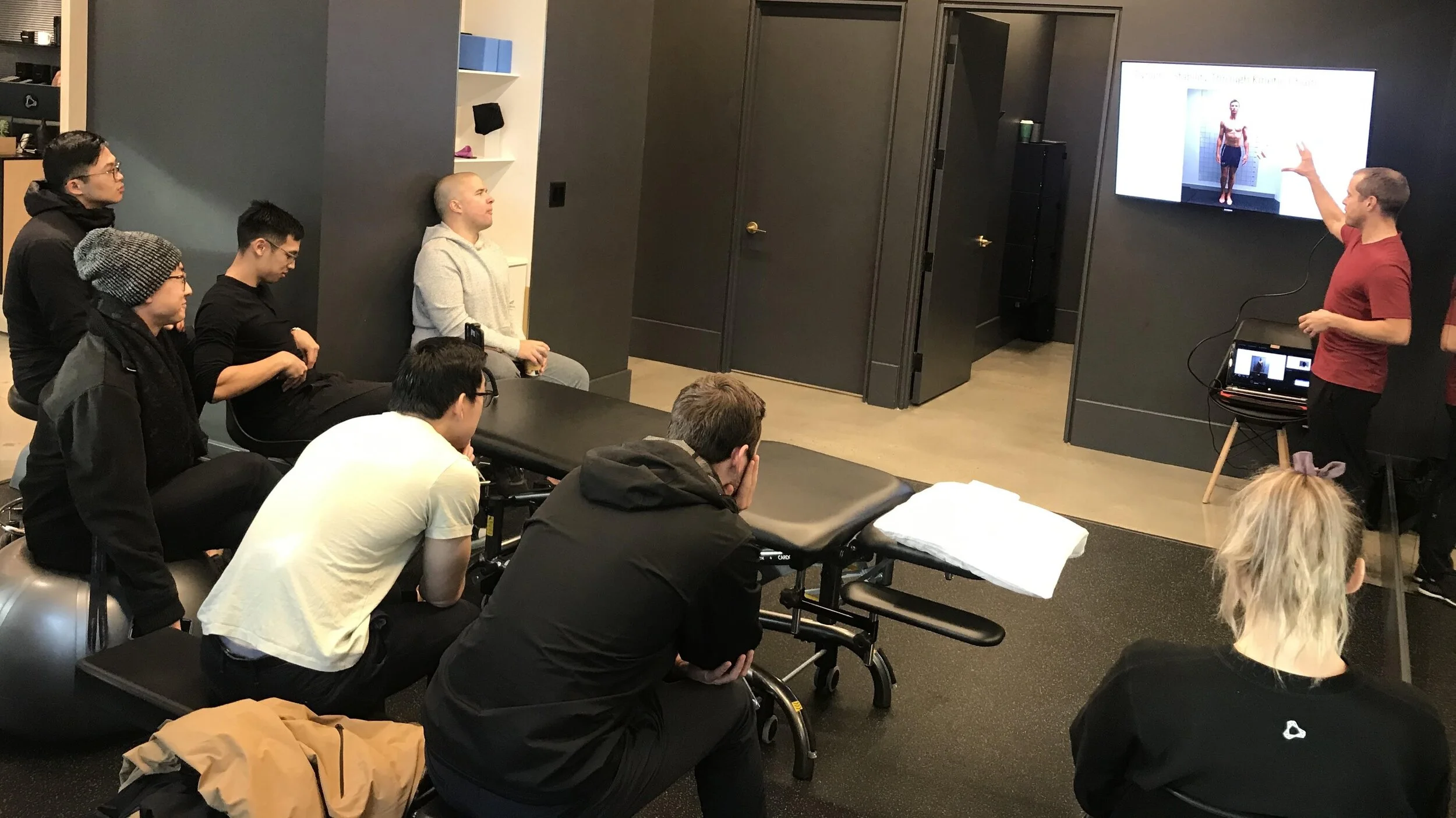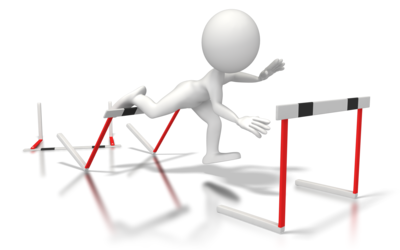An outsider’s view of elite and professional sport tends to assume that these environment are constantly engaged in ‘pushing the envelope’ in the relentless pursuit of better. The situation in reality tends to be quite different. Conventions and the pressure to conform to what others are doing have a powerful pull. Paradoxically the resistance to exploration and barriers to innovation are often more pronounced the highest level. Especially within professional sport those involved are acutely aware that their position is highly prized and job security at a premium. These conditions are naturally not conducive to taking risks or moving beyond the tried and tested. All of this helps to explain the abundant examples demonstrating that opportunities remain to gain significant competitive advantages and even some easy wins
Honing Professional Judgement and Decision-Making
Coaching is characterised as a judgement and decision making process. Practitioners and indeed most professionals who work in human performance are de facto coaches of humans. As such, the quest that unites coaches in different sports and practitioners across disciplines is to develop our professional judgement and our ability to make better choices and decisions over time. There is no endpoint to this journey and so the need to continually hone our judgement and decision making applies irrespective of what stage we are might be at in our career. That said, the question of how we best develop these skills for practitioners at the start of their career versus catering for these aspects in continuing professional development thereafter will likely require different solutions.
Continuing Our Education
As many practitioners will testify, it is after we have completed our formal education, professional training and certification that the real learning begins. The day to day experience of solving problems with live humans is when we discover the limits of our knowledge. It is also here that we find out that the reality is quite different to what is taught in class and the version that appears in (most) textbooks. Individuals, organisations and certifying bodies alike recognise this need to continue our learning once we are working in our respective field. The terms continuing education, continuing professional development and variations thereof will be familiar to most practitioners across disciplines (sadly it is not so well established in the coaching profession). What is less clear is how we might best tackle this ongoing quest and make good choices from the growing array of options with regards to content and the modes of delivery that are available to us.
Marshalling the Mind Under Stress
High stakes and heightened emotions are characteristic of competitive sport, particularly at the highest level. For those who operate in elite and professional sport the presence of stress seems ubiquitous. Coaches and athletes alike regularly face high pressure scenarios where there is a great deal of expectation and much riding on the outcome. Anticipation of an important event, such as a big game, major competition, or selection trials naturally inspire a host of feelings, thoughts, and emotions, ranging from excitement to anxiety and even dread, sometimes simultaneously! In this post we explore how we can equip ourselves and help our athletes to meet the psychological and emotional challenges we will inevitably face on the journey.
Clues for Successful Youth Sports Parenting
Parents play a vital role in supporting their child to participate in youth sport. Parents are quite literally the driver, providing both the opportunity and transportation. Youth sports parenting is a full time job in itself, demanding considerable investment in terms of both money and time. It is parental support that affords kids the opportunity to participate and derive the myriad benefits associated with youth sports, which span athletic, health, scholastic, and life skill realms. Naturally, parents are invested in their child’s youth sports participation, and this investment often leads to increasing involvement. Yet despite the best intentions there are adverse consequences when parental involvement or intervention becomes excessive. In this Informed Blog post we unravel the complexity and challenges of being the parent of a youth sports athlete, and attempt to offer some clues to help guide parents to walk this fine line at different phases in the youth sports journey.
Emotional Aptitude in Athlete Preparation
Emotion has traditionally been viewed as something to be suppressed. The logic goes that as leaders and people in positions of authority we should be detached and act ‘without emotion’. If somebody is described as ‘emotional’ generally this is construed as a bad thing; when we become ‘emotional’ the implication is that we are no longer being rational or we are not capable of reason. Conventional wisdom advocates we avoid an emotional response or making emotional decisions. In contrast to these established views, more recent study in this area demonstrates that emotion is in fact integral to reasoning, decision making, guiding our behaviour, and our ability to relate to others. Emotional intelligence is accordingly becoming recognised as being at least as important as more established forms of intelligence. Indeed we increasingly hear commentators proclaim that ‘EQ trumps IQ’. In this latest Informed Blog we delve into the role of emotion in coaching and our work with athletes, and explore what aptitudes we need to possess in this area as leaders, coaches, and practitioners.
Fostering Diversity of Thinking
Divergence of opinion has traditionally been viewed in less than positive terms: when x and y don’t see eye to eye on a particular subject, this is generally seen as problematic. By extension, we hear of the virtues of assembling a group of ‘like-minded’ individuals. Organisations typically promote compromise and conformity as virtues to foster harmony and unity within the group. Contrary to this, the wisdom of crowds illustrates the benefits of aggregating judgements from a broad and disparate group of individuals. To further strengthen the case for diversity of thought and experience, ‘cognitive diversity’ is in fact found to be the major factor that differentiates successful teams and organisations. In this Informed Blog, we explore the paradoxical ways diversity and divergence are conceptualised, and see what lessons we can take on a group and an individual level in the context of sport.
A Wake Up Call on Sleep
Sleep is essential to sustaining life. Yet the majority of us are casually dismissive when it comes to sleep. We routinely deny ourselves this most critical sustenance of our own volition. The attitudes towards sleep among high performing individuals in different realms and society in general are quite baffling. We also largely fail to make the connection between the reckless lack of care and attention we give to our sleep and the dizzying array of consequences that inevitably follow. Objectively this behaviour is bizarre, and our failure to prioritise sleep defies logic. With this latest Informed Blog we explore the myriad ways you lose when you don’t snooze sufficiently.
Informed Shorts: Making New and Better Mistakes
As the saying goes, there is no success without struggle. The fear of making mistakes can become disabling, particularly if our aim is to try something new or different. So perhaps we need to to reframe how we think about making errors to avoid being too constrained by the desire to not get it wrong. The quest to be creative and innovative in our problem solving necessitates having the freedom to try new and different things. This principle applies whether we are seeking to explore new questions, or find different solutions to existing questions.
Informed Shorts: 'Meta Abilities' for Coaches, Practitioners and Athletes
In this second ‘Informed Short’ we explore the concept of meta-abilities, and unpack the superpowers that we can harness to enhance our practice in a variety of realms as coaches and practitioners in sport, and educate our athletes to make use to these tools for themselves. We can define meta-abilities as ‘higher order’ skills. A defining characteristic of meta-abilities is that they effectively determine how well we are able to make use of our other capabilities.














